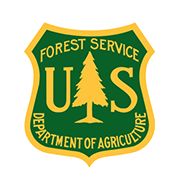Highlighted Activity

Every spring and fall, the Beaverhead-Deerlodge National Forest, along with its interagency partners and neighbors, plans to implement prescribed fire projects, as weather and fuels conditions allow.
Prescribed fires are carefully planned and conducted in accordance with a written burn plan. Prior to implementation, Forest fire managers coordinate with local cooperators, county officials, and interagency partners. When prescription criteria are met, firefighters implement, monitor, and patrol each burn to ensure it meets forest health and public safety objectives. All prescribed fires will be implemented in compliance with Montana air quality standards and coordinated with the Montana Department of Environmental Quality and the appropriate county health departments to minimize the impacts of smoke. Smoke may pool in drainage bottoms and along highway corridors overnight; impacts are expected to dissipate in a few days.
Why use prescribed fires? Prescribed fires help reduce surface fuels, increasing landscape wildfire resilience and reducing the risk of uncharacteristic wildfire effects on the landscape. In addition, they improve and maintain forest health and wildlife habitat and eliminate invasive species. The forest ecosystems in the Northern Rockies have evolved with fire, with many of them relying on periodic fires to establish and maintain forest health.
Benefits of prescribed fire as a forest management tool:
• Protects communities and infrastructure by reducing hazardous fuels and the risk of future high-intensity wildfires.
• Mitigates future wildfire risk and promote resilient fire-adapted landscapes.
• Reduces build-up of flammable vegetation, dead and down trees, and overgrowth.
• Improves and supports wildlife habitat for many species on the Forest.
• Limits the spread of invasive plant species and minimizes the spread of pest insects and disease, maintaining native ecosystems.
• Recycles nutrients back into the soil.
• Promotes the growth of trees, plants, wildflowers, and other flora and fauna.
• Continues the historic, natural fire regime of periodic disturbance by fire in forested ecosystems.
How do we plan? Prescribed fires are planned for various units across the Forest; however, the window of opportunity for prescribed fire implementation is affected by several factors. Safety factors, weather conditions, air quality, personnel availability, and environmental regulations are continually monitored before implementation to determine feasibility of moving forward with the prescribed fire operations, during implementation, and after completion of the unit(s).
Public notifications: Prior to initiating the prescribed fires, fire professionals assess conditions, conduct a test burn, and notify local governments and interested publics via website postings, email, social media, and news releases. Implementation and accomplishment updates will also be posted to the Forest website, Inciweb, and the Forest Facebook page.
Safety and monitoring: Trained fire professionals who have studied fire behavior and fire control techniques conduct prescribed fires in such a way to ensure the safety of the fire crew, nearby residents, and property.
| Current as of | Wed, 06/05/2024 - 19:34 |
|---|---|
| Incident Type | Prescribed Fire |
| Date of Origin | |
| Location | Beaverhead-Deerlodge NF |
| Incident Commander | Beaverhead-Deerlodge NF Fire & Fuels Staff |
| Incident Description | Prescribed fire operations on the Beaverhead-Deerlodge National Forest. |
| Coordinates |
45° 35' 55.38'' Latitude
-113° 7' 11.42
'' Longitude
|
| Remarks |
“The intent behind these cool season prescribed fires is to reintroduce fire as a natural disturbance agent on the landscape under conditions that are more achievable for natural resource objectives,” said prescribed fire burn boss and Fuels Program Manager for the Forest, Greg Schenk. “Safety of our firefighters and the public is always our number one priority. We only conduct the prescribed fire operations if conditions allow – conditions must be just right on the ground, as identified in the corresponding plans,” said Schenk. |
|---|
| Weather Concerns | Prescribed fire activity is highly weather dependent, relying on close coordination with the National Weather Service and other subject matter experts.
|
|---|

 InciWeb
InciWeb